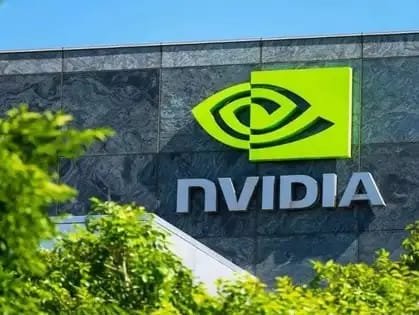
Nvidia's H20 AI chip developed for China under U.S. export controls.
China’s growing concerns over Nvidia’s H20 chips
So recently China has expressed serious concerns over the potential security risks associated with Nvidia’s H20 artificial intelligence (AI) chips. The Chinese Cyberspace Administration has summoned Nvidia representatives and asked them for clarifications and supporting documents on potential backdoor vulnerabilities and other security issues in these chips. This development has come at a time when technological competition between the US and China is at its peak. And AI chips have become an important part of this competition.
Background US sanctions and the birth of H20 chip
The US government had imposed strict restrictions on the export of advanced AI chips with the aim of slowing down China’s military capabilities and AI development. These sanctions directly affected companies like Nvidia for which China is a large and important market.
Talking about complying with the sanctions
To comply with these sanctions, Nvidia specifically designed less powerful AI chips like H20 for China. They modified the H20 chip in such a way that it does not violate US export controls but can still meet China’s AI development needs to a certain extent. Also, the Trump administration had banned the sale of H20 chips in April 2025 due to fears that the Chinese military could use these chips. But recently the US government has lifted this ban, allowing companies like Nvidia and AMD to resume sales of some AI chips to China. US officials had claimed that H20 chips are less powerful than more capable products produced by Chinese domestic providers such as Huawei. Which will not pose any significant threat to the US AI edge.
What are China’s concerns about the backdoor issue
So the Chinese Cyberspace Administration has cited serious security vulnerabilities in Nvidia’s H20 chips. And specifically their concerns are related to the location tracking and remote shutdown capabilities present in the chips. China alleges that these features could be used to threaten the network and data security of Chinese users. It is important to note that Nvidia has not publicly acknowledged that the H20 chips have such functionalities. China is demanding that Nvidia explain these risks and provide relevant documentation. The case has been raised under the Chinese Cybersecurity Law, Data Security Law and Personal Information Protection Law.
Analysis of potential security risks
A backdoor is a secret entry point that allows unauthorized access to a system or device. And through which security controls can be bypassed. China’s fear with respect to H20 is that H20 chips may intentionally or inadvertently contain backdoors that could provide US intelligence agencies or other external entities access to Chinese data centers and AI systems. The potential uses that could arise if such backdoors exist. So attackers can use these to extract sensitive data, disrupt AI models, or even disable critical Chinese infrastructure. Also location tracking which although location tracking capability directly in an AI chip may seem strange. The chip’s firmware or software layers can transmit geographic location information to the server or network where it is installed.
Military and strategic implications
If H20 chips are used in Chinese military or sensitive government AI systems. Then location tracking capabilities can reveal the whereabouts of critical military or strategic assets. Also remote shutdown which is one of the most serious concerns. If H20 chips have remote shutdown capabilities. So it means that an external entity possibly the US government or Nvidia itself can disable these chips remotely. If someone can shut down China’s critical AI infrastructure, such as large data centers or military simulation systems, remotely, then it can have a devastating effect on the Chinese economy and national security. This would make China highly dependent on foreign technology and could weaken it at a crucial time.
Data integrity and privacy
So if the chip has any unauthorized access or data transmission capability. It can compromise the integrity of the training data of the AI model and the privacy of the personal information of Chinese users. Also China’s claims and geopolitical implications And China raising these security concerns goes beyond just technical issues. It has many geopolitical implications. Also emphasis on self-reliance which is China has long been pushing for increasing its semiconductor self-reliance. By highlighting security concerns on Nvidia chips, China is presenting an argument to boost its domestic chip industry and reduce its dependence on foreign technology. Also pressure on the US which by raising these concerns China wants to put pressure on the US to further loosen its restrictions on high-end tech exports or at least ensure that the exported chips do not have any latent vulnerabilities.
National security shield
Which is China by expressing concern for its national security and data sovereignty is asserting its right to control its own AI development and protect it from foreign interference. As well as the impact on trade talks, this development could impact trade talks between the US and China. There were signs of improvement in trade relations after talks between top economic officials of the two countries in Stockholm but these security concerns have again raised tensions. It will be interesting to see how this situation develops. The results of the Chinese investigation could impact Nvidia’s ability to do business in China and the future of US-Chinese tech relations. As well as the results of the investigation, the Chinese investigation could reveal more information about the true capabilities of the H20 chips. And if real vulnerabilities are found.
Nvidia’s situation and future challenges
So this situation presents a challenge for Nvidia. And China is one of its largest markets. And continuing to sell there is important for its revenue. On the one hand it has to comply with US government export controls and on the other hand it has to address China’s security concerns. As well as compliance and transparency which means Nvidia will have to fully cooperate with Chinese authorities and provide all necessary information and documentation related to the security of the H20 chips. trust building which means it will have to build trust with Chinese customers and the government that its products are secure and do not contain any hidden vulnerabilities. As well as technical adaptation which means if there is some truth to China’s concerns then Nvidia may have to consider modifying its products to suit Chinese requirements even if it means removing some features
Increasing technological self-reliance
So this incident may push China to invest more in its domestic chip industry. Which can reduce its dependence on foreign AI chips in the long term. Also, efforts by Chinese companies like Huawei to develop already powerful AI chips are an important step in this direction. As well as the impact on the global AI supply chain which if the technological rift between the US and China deepens. So it could have a significant impact on the global AI supply chain. Which can lead to segmentation and more regionalization. Also important will be the US response, which is how the US government responds to the case. Will they dismiss China’s claims or will they work with Nvidia to resolve the matter?
Conclusion
So China’s security concerns over Nvidia’s H20 chips are not just a technical issue. It is a symbol of the deepening geopolitical and technological competition between the US and China. These concerns also reflect China’s growing determination for national security data sovereignty and technological self-reliance. And in the future, this case could play an important role in shaping the technological relationship between the two countries and the future of the global AI industry. Nvidia will have to take these concerns seriously and act with transparency to maintain its position in the important Chinese market.





